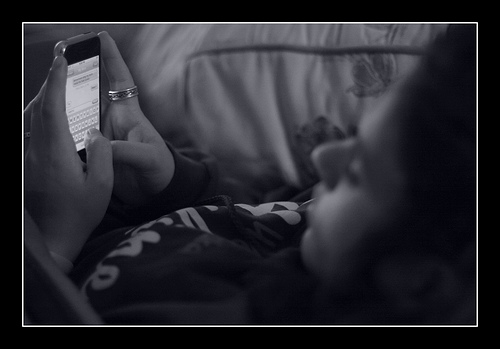Will Apple Anti-Sexting Technology Work?
Apple may soon lose its appeal to younger audiences by providing a service that allows parents to filter and manage content sent by their children via texts.

The company recently decided to participate in the censorship of its younger users by acquiring a patent that could be used to block sexually explicit material from the iPhone. Even though the technology is not already available, it would allow cell phone carriers to filter both ingoing and outgoing “obscene material” and report any findings.
Regulating set standards for grammar and language, this new technology will scan messages and look for a prescribed list of “explicit words” and prevent the message from reaching its destination if any word on the list shows up in the message. Then the message will be transmitted to an “administrator” and they will be able to view the message and take the proper action.
Surprisingly, the technology will not be included as a standard feature. Instead, parents will be able to download and “administrate” the tool as they see fit.
Will any of this new technology solve anything? The answer is no. Students in high school can get around any firewall or content blocker by finding or creating a proxy to bypass the system. I will admit that Apple has had a long history of top notch security features but if a teenager can’t crack the system, they can definitely find someone to do it for them.
So what will stop them getting around this new virtual parenting tool? Nothing.
Also, if the iPhone blocks explicit texts, what happens to explicit pictures? Even though most of the actions attributed with sexting are sent through texts, a growing number of these actions are being sent through pictures. Most of the teens that have been indicted for sexting material have been sending nude pictures. So if a picture is worth a thousand words, teenagers will probably turn to dirty picture messages to “express” themselves more.
If parents plan to download this app for their children, how do they think it will affect the relationship they have with their teen? For most situations, if a parent feels that their child can’t be trusted to send appropriate text messages then they probably shouldn’t have a phone in the first place. During the awkward stages of adolescence, teenagers want as much freedom from their parents as they can get. By saying “no” to parents, teenagers feel very liberated and empowered. They thrive on this feeling because it is very rare to get this feeling from other stimuli. To overcome this, parents should put more trust in their children. Sure they will make mistakes but by telling them no, it makes it more tempting to rebel.
Now I will admit that sexting is bad and that there should be pre-emptive measures taken to stop it; however, parents should not have the ability to watch every interaction that their children make. Parents hoping to use this technology as an extension of their parenting tatics will be sadly disappointed. No technology will ever be powerful enough to keep teens from accomplishing from what they want to say. The desire to push boundaries will always overpower technology.
Reach reporter Jerome Campbell here.



